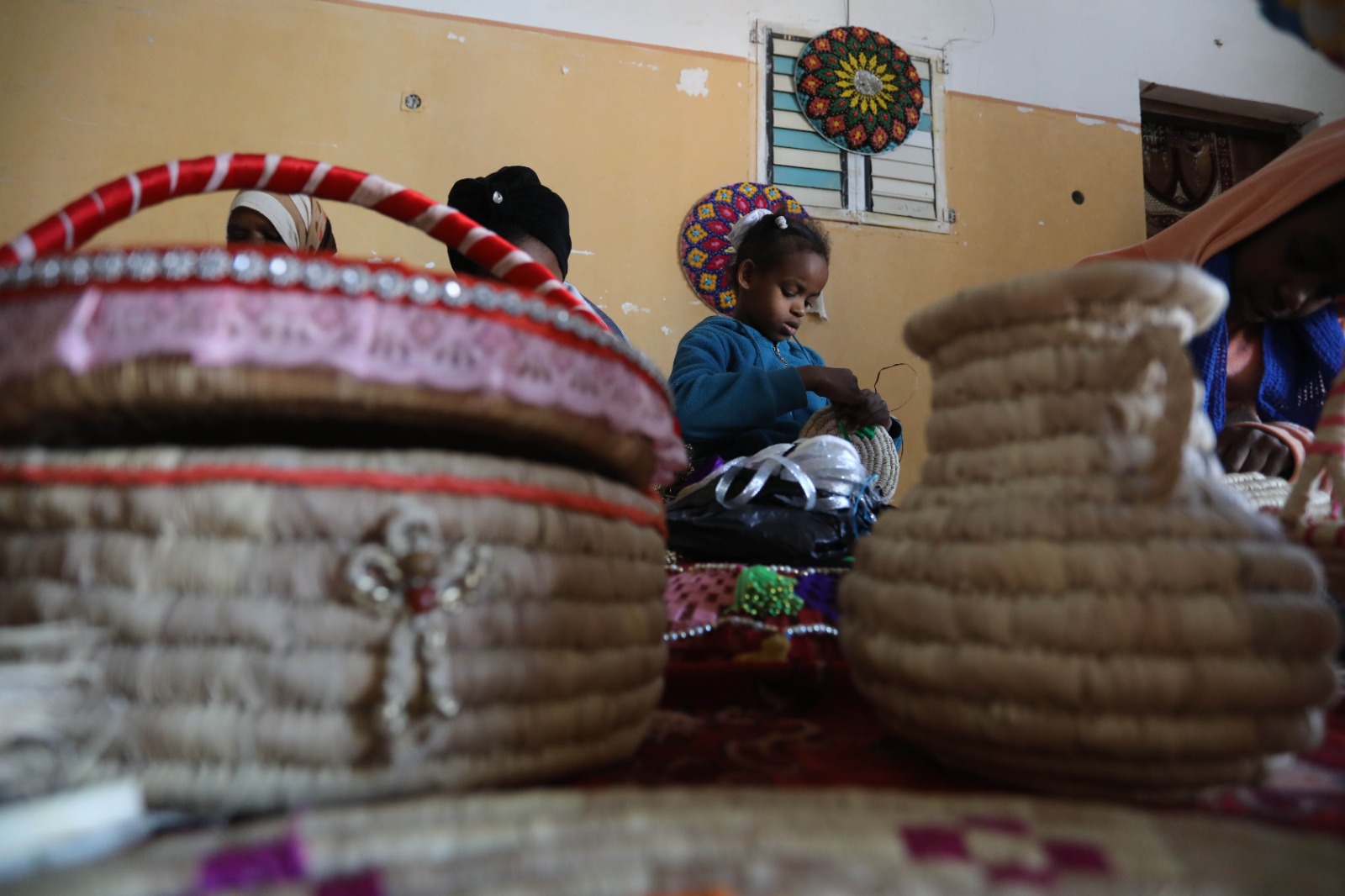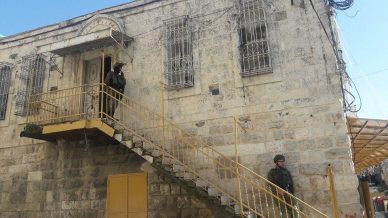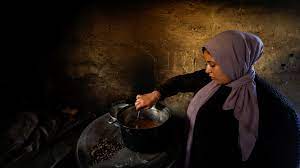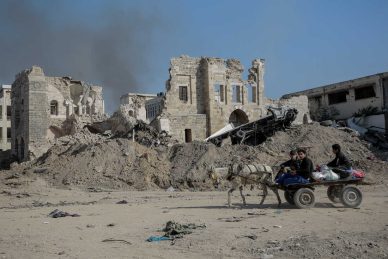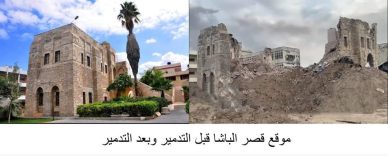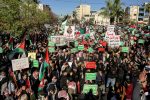With great skill of hand and dexterity the Palestinian woman Fatima Om Mansur along with her granddaughters weave different alluring and lovely objects using straw derived from palm fronds.
Fatima weaves without looking at the movements of her thumb and forefinger a testament to her long-practiced craft. While trimming the ribs off a finished basket she says “It’s tiring work but when it’s done I feel relaxed as I see a Palestinian identity and history which the occupation has tried to obliterate.”
Historically straw handicrafts a trade traditionally carried out by women was a source of income for women in many Palestinian areas. The prevalence of the trade declined years ago due to the emergence of many industries of iron wood and plastic but some Palestinian artisans still maintain this craft as a way to preserve their heritage. Palestinians weave varicolored twigs from olive almond palm and terebinth trees into decorative and functional items like baskets trays containers and more.
Fatima who lives in Dair Al-Balah chooses to make items from the palm tree fronds from the palm trees her town is famous for which according to Fatima are readily available for harvesting but requires time and patience to use. Fatima says “I learned this craft and I taught it to my family and also gave training courses for women in my town on basketry and others.” She is reliant on the craft but also finds fulfilment in the art explaining “Yes it is my only source of livelihood but it’s more than that for me.” She continued “It’s a duty to preserve our heritage against the lies that the Israeli occupation tries to spread that our Palestinian heritage is theirs. Our heritage is older than their fake state.”
Weaving process
Fatima begins her long journey by collecting palm fronds before drying them in the sun in a process that lasts for several days. She carefully monitors leaves while under the sun as lengthy drying time may lead to cracking or breaking during manufacturing process while failure to arrive at the standard dry stage may lead to rotting. In the next stage the dried leaves that she will use that day are soaked in cold water for 35 minutes or hot water for 20 minutes before she starts weaving them to be more readily pliable for the plaits and folds. Fatima also has a special tactic for knitting the fibers beginning with making a small knot of palm fronds and the flexible fronds of fountain grass. Through the grass fronds she weaves golden palm leaves often dyeing them pink and red with a small needle. According to Fatima the practice of making straw utensils requires a clear mind and intense focus because any error in the accuracy and consistency of the sticks may cost them the loss of many hours of work requiring her to undo the inconsistent sections and remake it entirely.
In Arabic artisans who work this craft are called “Al-Khawwas” and it is a field mainly populated by Bedouin Palestinians. In the past the use of straw tools was necessity and not just a means of decoration emerging from a need to provide a wide variety of containers for domestic and agricultural purposes. Bread and vegetables were commonly served on woven platters and food stored in woven baskets. Woven products are also featured at social occasions including weddings as in the henna ceremony. The woven basket and saniya (tray) were also designed to carry harvested produce and dry herbs for the winter months.
Fatima sells the items in the local market. “Although there is not much of a high demand on them I feel that I am doing duty toward my occupied country” she insisted. She describes this as practical resistance against the occupation’s attempts to eliminate the identity of the indigenous people of Palestine. However as widespread usage of and reliance on imported and plastic utensils grows the demand for straw products has consequently decreased rendering these products into primarily ornamental usage. Therefore Fatima manufactures her wares only at the request of customers.
– Wafa Aludaini is a Gaza-based journalist and activist. She contributed this article to the Palestinian Information Center.

